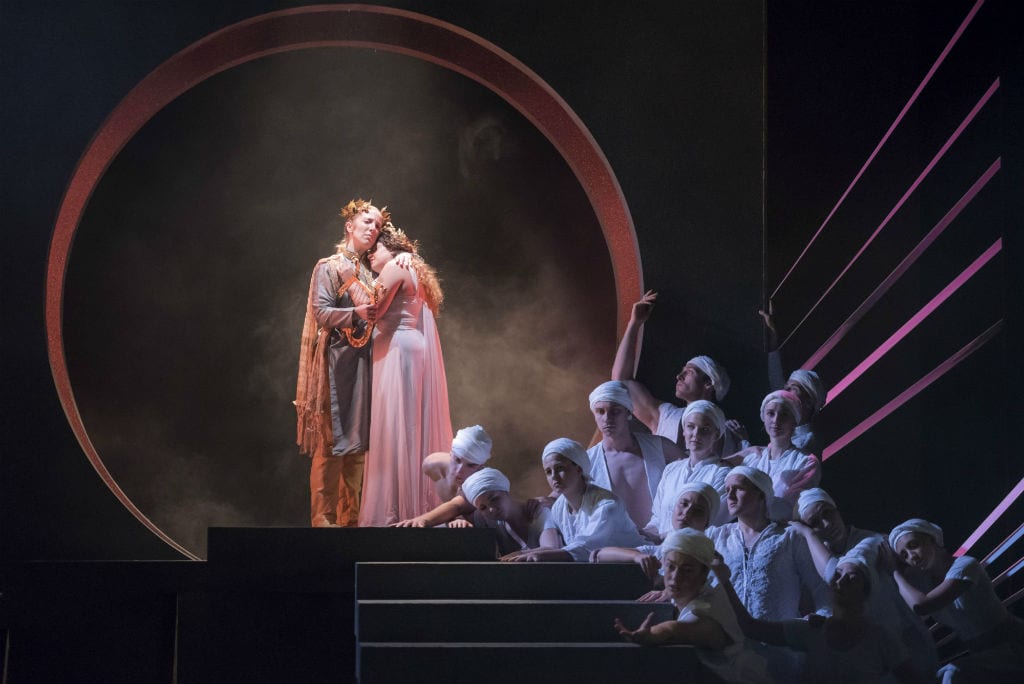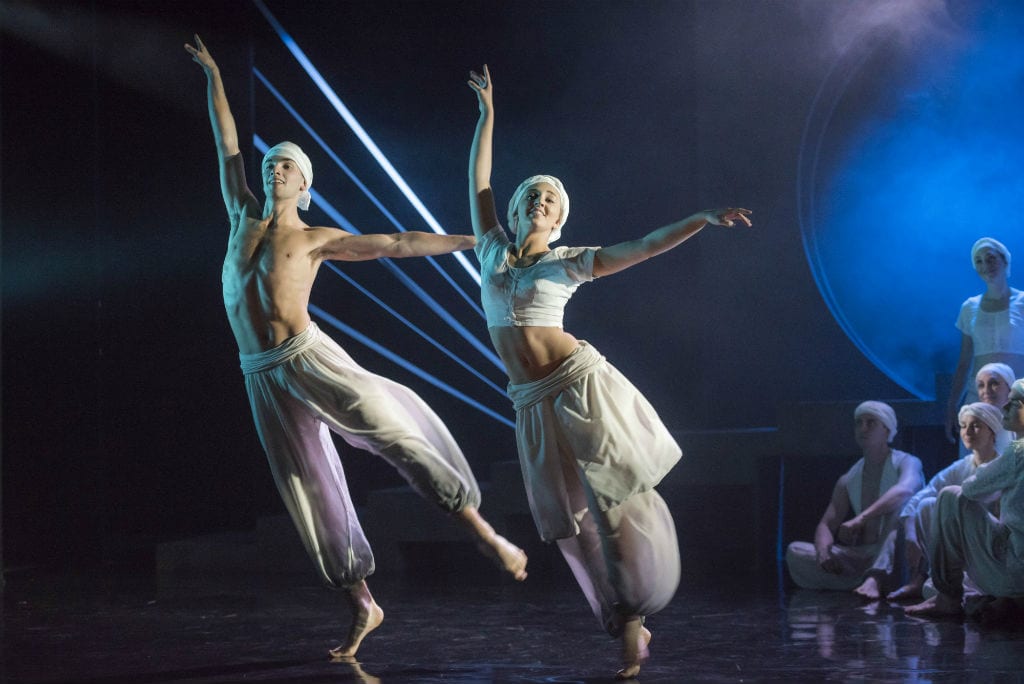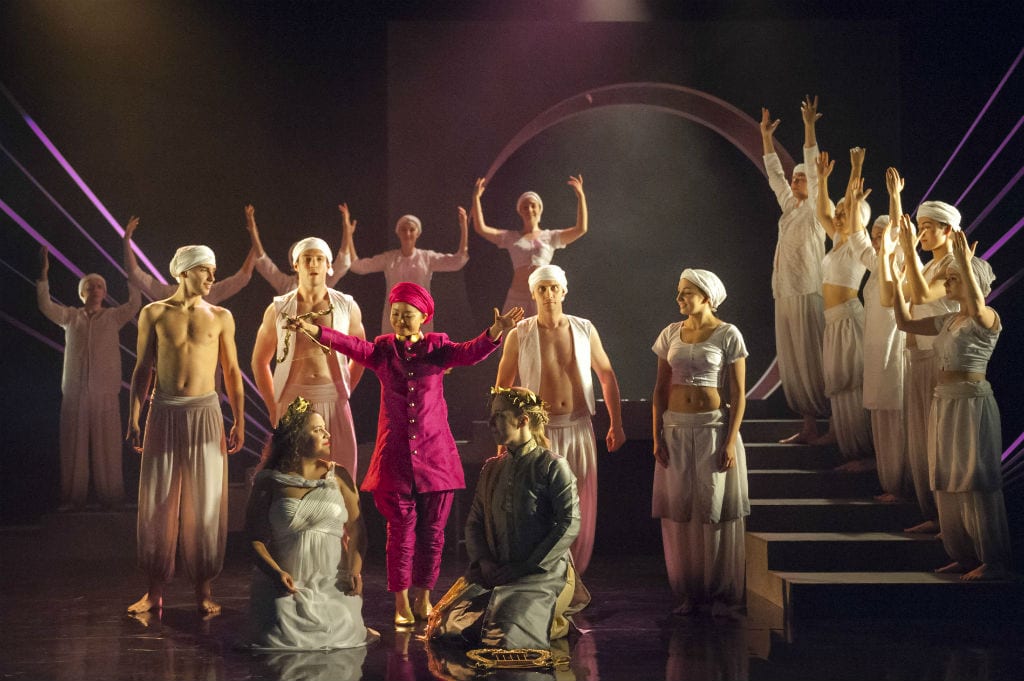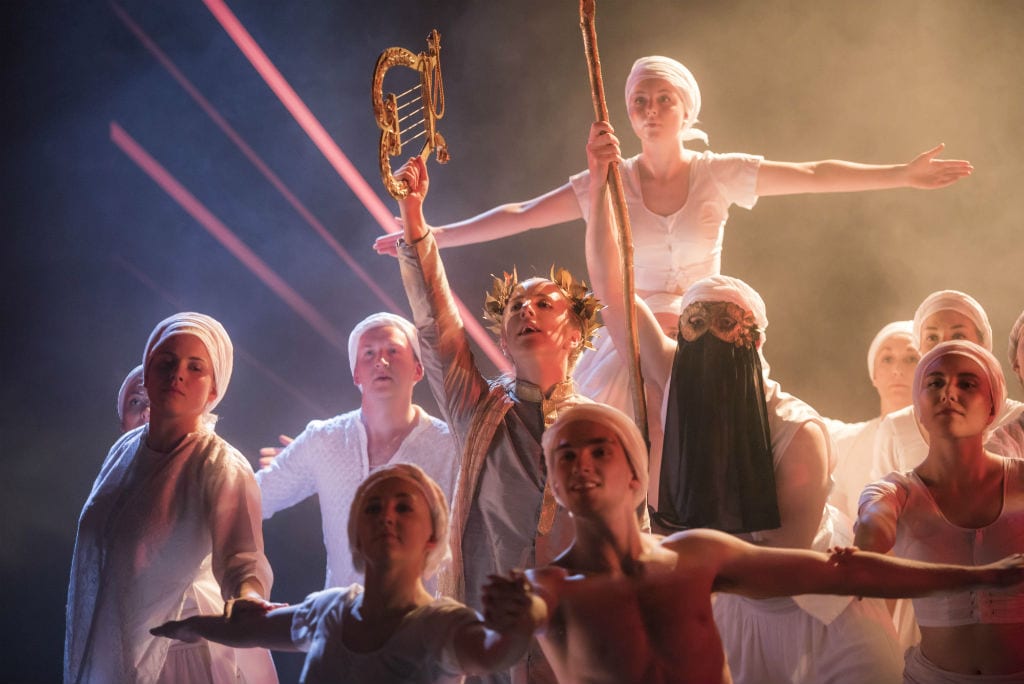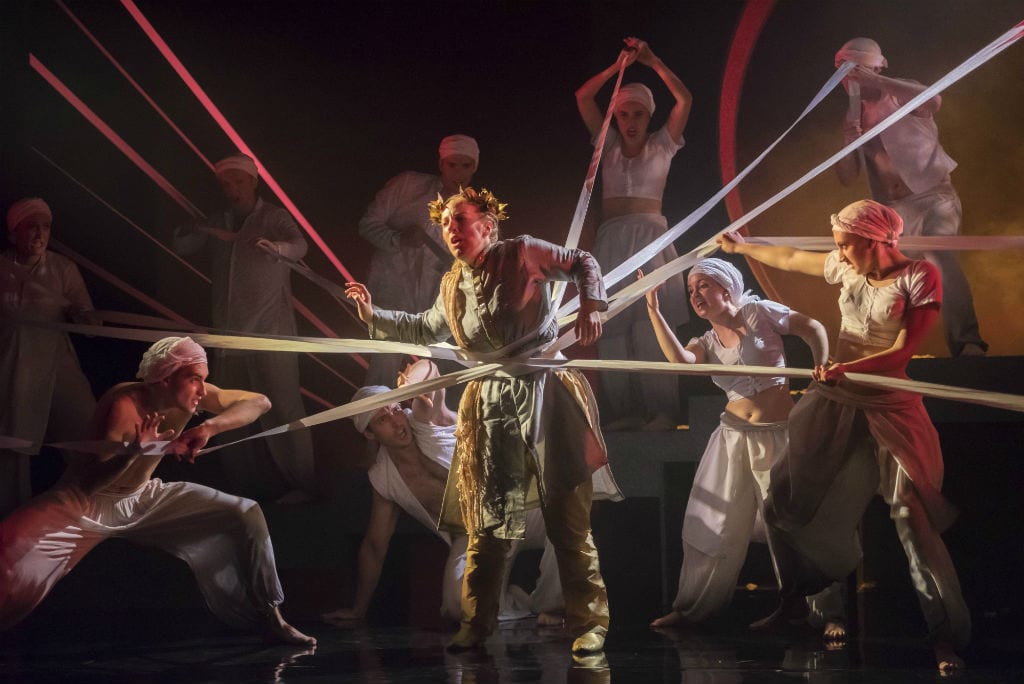The season at Longborough, as always, ended with a production devoted to young, up-and-coming performers both on stage and in the orchestra pit, an initiative to give a springboard to their careers. The choice of opera this year was Gluck’s seminal and extremely influential Orfeo ed Euridice. The excellent design by Richard Studer was handsome, simple and completely in keeping with the classical approach of the opera, with striking lighting designed by Dan Saggars as well. It was another success for the company, calmly yet passionately performed under the fine direction of Maria Jagusz and with a superbs central performance as Orfeo movingly sung and acted by mezzo Hanna-Liisa Kirchin who clearly has a stellar career ahead of her. Her openings cries of “Euridice” were so beautifully sung and controlled that you knew immediately you were in the presence of a completely reliable talent both vocally and dramatically. Orfeo is a central and demanding role and Kirchin never flagged. The aria “Addio, Addio, o miei sospiri” (“Farewell, Farewell, O My Sighs”) was moved to the end of the first half of the opera, placed when Orfeo has harrowed hell, a suitable transfer of a powerful aria to a point that ends the first half with some vocal fireworks before the audience gets a break of ninety minutes for the picnic, Glyndebourne style. The aria, which was disputed for a long time as being an interpolation but which George Solti and Marilyn Horne, among others, helped prove was actually by Gluck, was delivered with such panache and dramatic exuberance that the spectators were buzzing with excitement about Kirchin’s vocal qualities as they left the auditorium. They were also talking about the memorable visual effect of the chorus turning itself into the boat that transports Orfeo across the River Styx and the representation of Charon by Ryan Full.
Kirchin was as strong in the second half and delivered the famous “Che farò senza Euridice?” (“What will I do without Euridice?”) with moving pathos and total musical control. It was a wonderful moment. Nazan Fikret as Euridice and He Wu as Amore were also very fine. Fikret’s voice positively gleamed at times but I missed her aria “Quest’asilo ameno e grateo”(“This pleasant and agreeable refuge”) that usually opens the scene in the Elysian Fields. Why was it missed out? Was it just a variant edition that they were using? Gluck revised the opera a lot and there are several versions, including one for a tenor Orfeo so there is probably a precedent. He Wu has an ideal physical and vocal presence as a soubrette Amore and one can imagine her easily in roles such as Oscar in Un Ballo in Maschera or even Zerbinetta in Ariadne auf Naxos. She was perky and delightful in all her appearances and utterly charming.
The chorus – first playing the grieving friends of Orfeo and Euridice, then being the furies, then being the Happy Shades in the Elysian Fields, then as friends again – deserves praise for its sonorous musical performance as well as for its acting and movement; as do Jordan Scrase and Emily Smith for their special dances. Praise must also be given for the conducting of Jeremy Silver, once again leading this interesting and successful initiative to help launch young singers on their professional way. All the elements for this opera came together in a simple, compelling and very moving way.
This has been a good season as Longborough with only Fidelio as a production misfire and with two top class productions in Tristan und Isolde and The Magic Flute. It ends with a fine Orfeo ed Euridice. Also note that Thomas Gurthrie who directed The Magic Flute is returning next year for Wagner’s Flying Dutchman, which I suspect will therefore be another winner.
Longborough itself is a lovely place to experience Country House Opera, to have a picnic in attractive grounds involving opera-going and I feel that it is getting stronger for its productions year by year.
This production of Orfeo ed Euridice takes place for a final performance on 4 August 2017 at King’s College London’s Greenwood Theatre, located at 55 Weston Street, London, SE1 3RA.

